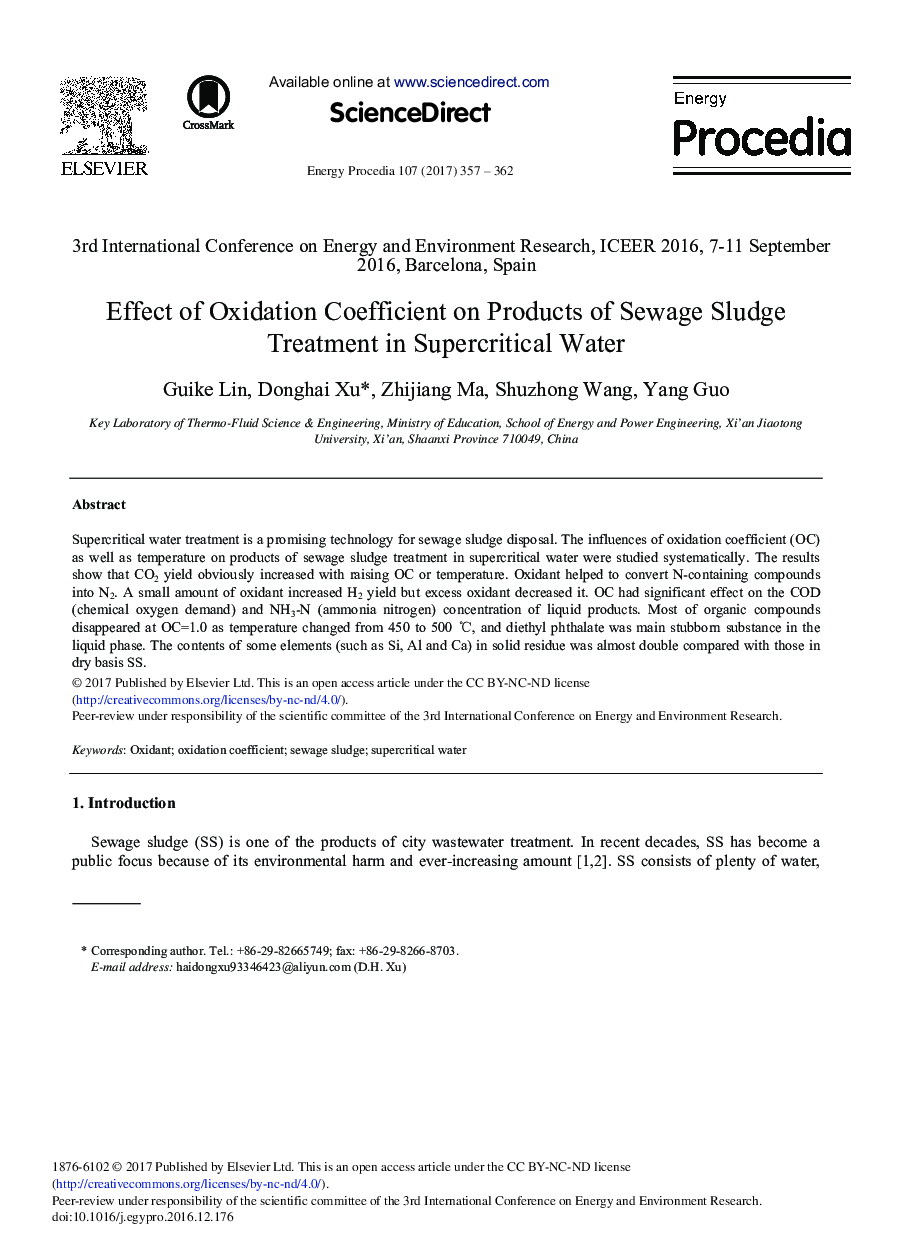| Article ID | Journal | Published Year | Pages | File Type |
|---|---|---|---|---|
| 5446214 | Energy Procedia | 2017 | 6 Pages |
Abstract
Supercritical water treatment is a promising technology for sewage sludge disposal. The influences of oxidation coefficient (OC) as well as temperature on products of sewage sludge treatment in supercritical water were studied systematically. The results show that CO2 yield obviously increased with raising OC or temperature. Oxidant helped to convert N-containing compounds into N2. A small amount of oxidant increased H2 yield but excess oxidant decreased it. OC had significant effect on the COD (chemical oxygen demand) and NH3-N (ammonia nitrogen) concentration of liquid products. Most of organic compounds disappeared at OC=1.0 as temperature changed from 450 to 500, and diethyl phthalate was main stubborn substance in the liquid phase. The contents of some elements (such as Si, Al and Ca) in solid residue was almost double compared with those in dry basis SS.
Related Topics
Physical Sciences and Engineering
Energy
Energy (General)
Authors
Guike Lin, Donghai Xu, Zhijiang Ma, Shuzhong Wang, Yang Guo,
